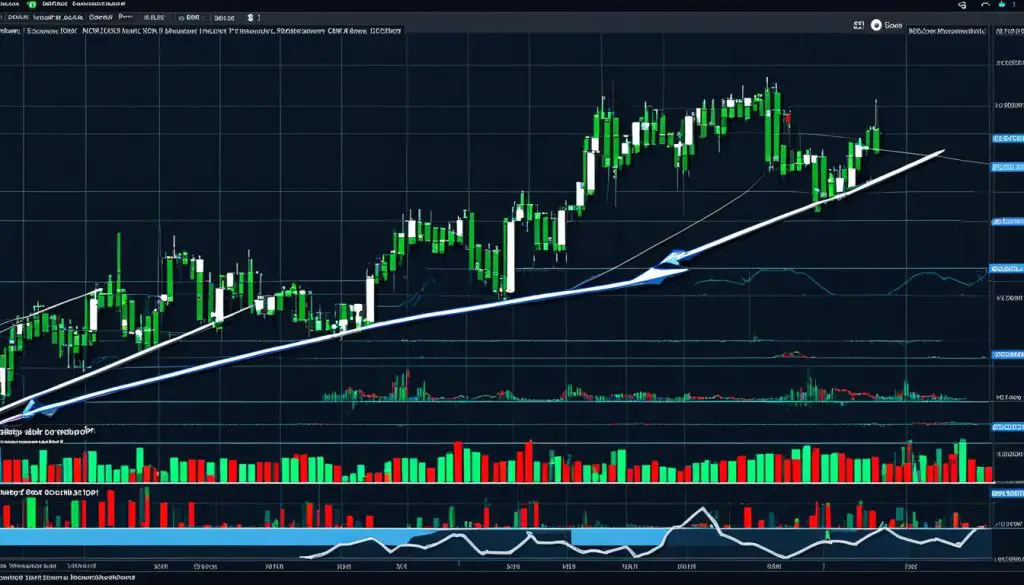The burgeoning interest in forex trading Malaysia has sparked numerous discussions about its legality and the availability of legal forex brokers. As participants navigate the Malaysia forex market, understanding the legal nuances that govern foreign exchange trading within the country is essential. This comprehensive examination sheds light on the legal landscape, ensuring that traders can conduct their activities with confidence, all within the boundaries of Malaysian law.
Understanding Malaysia’s Financial Regulations for Forex Trading
Malaysia’s trading laws and forex regulations are shaped by a series of legislative acts and financial authorities, ensuring the nation’s currency activities operate within a legal, regulated framework. Malaysia’s financial authorities, including Bank Negara Malaysia and the Securities Commission of Malaysia, play pivotal roles in enforcing these regulations. Among the key legislative cornerstones are the Exchange Control Act, the Securities Commission Act, and the Money Service Business Act, each addressing different facets of forex trading regulations.
Ins and Outs of the Exchange Control Act
The Exchange Control Act of 1953 remains one of the foundational legal frameworks within which foreign exchange dealings are conducted in Malaysia. This Act outlines general restrictions on forex transactions and includes specific provisions for both residents and non-residents. It allows non-residents greater flexibility, particularly in transferring investment proceeds outside Malaysia, constructing a necessary balance between control and economic openness in the realm of forex trading.
The Securities Commission Act’s Role in Forex
Enacted in 1993, the Securities Commission Act grants the Securities Commission of Malaysia the authority to supervise and license financial markets and entities dealing with securities and derivatives. The Act plays a critical role in forex trading by ensuring that the business of securities, including forex, is conducted within a transparent and orderly market environment, promoting investor protection, and enhancing the overall integrity of financial markets in Malaysia.
Money Service Business Act Compliance
The Money Service Business Act of 2011 specifies that all forex trading activities in Malaysia must be carried out via licensed service providers. This Act establishes clear guidelines and operational standards for forex brokers, helping to prevent unauthorized forex trading and assuring compliance with financial regulations. It represents an essential legal measure for preserving consumer trust and maintaining stability in the forex market.
| Legislation | Purpose | Impact on Forex Trading |
|---|---|---|
| Exchange Control Act 1953 | Regulate foreign exchange dealings | Sets restrictions and freedoms for currency transactions |
| Securities Commission Act 1993 | Licensing of securities businesses | Ensures orderly and transparent market conduct |
| Money Service Business Act 2011 | Regulation of money service businesses | Mandates forex trading through licensed entities |
Understanding these statutes provides not only a legal backdrop for traders and brokers alike but also fortifies Malaysia’s commitment to upholding high standards of financial oversight and regulation. The collective enforcement and compliance with these acts ensure that Malaysia’s forex markets remain reliable and resilient against malpractices.
Forex Legality in Malaysia: An Overview
The realm of Forex trading in Malaysia is both dynamic and regulated, ensuring that participants engage in legal forex trading activities. Scrutinized under Malaysia’s Money Service Business Act of 2011, Forex operations are lawful primarily through institutions that hold the appropriate licenses as governed by Bank Negara Malaysia (BNM). Ensuring the integrity of these financial activities, licensed forex entities are the cornerstone of forex legality in Malaysia and a pivotal aspect for any trader looking to participate in the market.
To bridge the knowledge gap for potential traders, a detailed look at the requirements for licensed entities will illustrate the robust regulatory framework within which legal Forex trading operates. The table below is a concise presentation of the types of institutions that are considered legal under the Act:
| Type of Institution | Regulatory Body | Permitted Activities |
|---|---|---|
| Commercial Banks | Bank Negara Malaysia | Forex Trading, Currency Exchange |
| Islamic Banks | Bank Negara Malaysia | Shariah-Compliant Forex Services |
| Investment Banks | Securities Commission Malaysia | Financial Advisory, Forex Trading Services |
| International Islamic Banks | Bank Negara Malaysia | Cross-Border Islamic Financial Services |
Furthermore, BNM maintains a proactive stance by publishing a list of institutions that are to be approached with caution or avoided due to unverified regulatory status. While not an outright indicator of deception, inclusion on this list suggests the need for detailed examination and due diligence on the trader’s part.
- Conduct thorough research on a broker’s regulatory status before engagement.
- Comparison of features and compliance of different licensed entities.
- Be vigilant of the warning list published by BNM to identify potential risks.
Engaging in Forex trading within the boundaries set by Malaysian law not only upholds the legality of one’s financial dealings but also ensures a layer of protection against fraudulent schemes and financial losses. By understanding and adhering to the established laws, traders can navigate the Forex market with an informed and confident approach.
Recognized Forex Brokers in Malaysia
For those involved in the Malaysia forex market, dealing with recognized forex brokers accredited with a Capital Markets Services License signifies a commitment to trading within a safe and regulated financial environment. Such brokers are not only compliant with local regulations but they are also under the scrutiny of financial authorities, ensuring a level of financial security and professionalism that traders have come to expect.
Evaluating Brokers with Capital Markets Services License
In Malaysia, the assurance that comes with a Capital Markets Services License is of paramount importance for forex traders. This license is an indication that a forex broker has met the rigorous standards set out by the Malaysian authorities, including solvency requirements and operational guidelines that are designed to protect the investor.
Central Bank of Malaysia’s Stance on Forex Brokers
BNM forex regulation plays a crucial role in establishing the credibility of the forex trading industry in Malaysia. The Central Bank of Malaysia, known locally as Bank Negara Malaysia (BNM), has made it clear that it views unlicensed forex entities with caution, warning investors to steer away from any broker that has not been given regulatory clearance.
Benefits of Trading with Regulated Forex Entities
Traders benefit significantly when they opt for brokers who comply with Malaysia’s financial regulations. These recognized forex brokers offer not just a safer trading environment but also guarantee a framework for recourse in case of irregularities, which further underscores the importance of regulated market participation.
| Feature | Regulated Broker | Unregulated Broker |
|---|---|---|
| Compliance | Adherence to BNM forex regulation and SCM standards | Not compliant with local financial regulations |
| Investor Protection | Segregated client accounts and recourse mechanisms | Limited or no protection for trader’s funds |
| Financial Standards | Strict operational and financial standards upheld | May not adhere to accepted financial standards |
| Risk of Scams | Lower risk due to regulatory oversight | Higher risk of fraudulent practices |
The Role of the Securities Commission of Malaysia in Forex Oversight
The Securities Commission of Malaysia (SCM) is the principal regulatory authority for forex oversight in Malaysia and is integral to the enforcement and compliance of financial operations within the nation. Tasked with the oversight of securities and derivatives markets, and responsible for approving corporate bonds and monitoring mergers and acquisitions, the SCM stands at the forefront of Malaysia’s efforts to sustain an orderly and transparent financial system.
As Malaysia’s financial regulatory body, the SCM promulgates an array of regulatory guidelines. These meticulously crafted rules shape the landscape of Malaysian forex trading, fostering an environment where investor interests are safeguarded. Furthermore, through rigorous licensing protocols, the SCM ensures that only competent and ethical brokers serve the Malaysian market, separating the wheat from the chaff in the forex industry.
| SCM Function | Impact on Forex Oversight |
|---|---|
| Market Regulation | Establishes fair and orderly trading of forex instruments. |
| Licensing | Screening and approval of forex brokerage firms. |
| Investor Protection | Ensures full disclosure and fair practices for investor security. |
| Guidelines Formulation | Sets out operational standards for risk management and compliance. |
| Public Register Maintenance | Provides a list of licensed brokers, enhancing transparency. |
Access to the SCM’s plethora of resources, including the comprehensive public register of authorized forex brokers, is an invaluable tool for investors and traders seeking credible and reliable trading partners. The commitment of the Securities Commission of Malaysia to its forex oversight function evidences the robust character of Malaysia’s financial regulatory framework, cementing the country’s status as a prudent and attractive destination for forex trading activities.
Safe Forex Trading Practices in Malaysia
Ensuring safety when trading forex in Malaysia involves a series of important steps that align with the rigorous regulatory framework established by local financial authorities. With the rise in forex trading, traders need to be well-informed about the mechanisms in place to protect their investments and the legitimacy of the practices they engage in. This requires understanding and adhering to SCM authorization and BNM forex guidelines.
Verifying SCM Authorization of Forex Brokers
To engage in safe forex trading practices, one pivotal step is to verify regulated brokers through the Securities Commission Malaysia (SCM). The SCM provides an online registry where traders can check if a broker holds proper authorization. The trustworthiness of brokers is further evaluated by SCM’s proprietary Trust Score, which can serve as a reliable indicator of a broker’s reputation and compliance.
Bank Negara Malaysia’s Forex Regulations and Guidelines
Adherence to BNM forex guidelines is another cornerstone of secure forex trading in Malaysia. Bank Negara Malaysia emphasizes the importance of following the set forex regulations that govern the national currency. The guidelines offered by BNM create a path that leads to legal and transparent forex trading activities, ensuring that those who engage in forex trading are within the bounds of financial propriety.
Traders are advised to proactively seek out this information to guarantee that they are working within a secure trading environment. This proactive approach not only shields traders from potential financial risk but also contributes to the overall stability of the forex market in Malaysia.
International Vs. Local Forex Regulations: Impact on Malaysian Traders
Malaysian traders are uniquely positioned at the crossroads of international forex regulations and local trading laws in Malaysia. The impact on Malaysian traders due to regulatory differences can be profound, shaping their choices, risks, and opportunities in the forex market.
The global landscape of forex trading is dotted with various regulatory bodies, each with their own set of rules and levels of investor protection. Institutions such as the Financial Conduct Authority (FCA) in the UK, the Australian Securities and Investments Commission (ASIC), and the Cyprus Securities and Exchange Commission (CySEC) are well-respected internationally for their strict regulatory guidelines.
On the other hand, within Malaysia, the Securities Commission of Malaysia (SCM) and Bank Negara Malaysia (BNM) enforce local trading laws designed to protect Malaysian traders and maintain the integrity of the country’s financial markets. The alignment with these local laws is crucial for traders and brokers alike to ensure legal compliance and safeguard investments.
Let’s explore the similarities and differences between these regulatory entities:
| Regulator | Region | Core Benefits | Protection Level |
|---|---|---|---|
| Financial Conduct Authority (FCA) | United Kingdom | High standard of investor protection, stringent oversight of forex brokers, compensation schemes | High |
| Australian Securities and Investments Commission (ASIC) | Australia | Strong emphasis on transparency and ethical financial practices, broker accountability | Moderate to High |
| Cyprus Securities and Exchange Commission (CySEC) | Cyprus / EU | EU harmonized regulation, investor compensation funds, easier EU market access | Moderate |
| Securities Commission of Malaysia (SCM) | Malaysia | Local legal compliance, protection under Malaysian laws, recourse in local jurisdiction | High (Locally) |
| Bank Negara Malaysia (BNM) | Malaysia | Oversight of currency and monetary policies, safeguarding economic stability | High (Locally) |
Understanding these regulatory differences enables Malaysian traders to make informed decisions about which brokers to use and the level of protection they can expect. The choice ultimately impacts their trading strategies, the tools they have access to, and their overall trading experience.
Therefore, considering both the international offerings and the local trading laws in Malaysia is crucial for traders in making a selection that aligns with their trading objectives and need for security.
Conclusion
As the Malaysian market continues to mature, the state of forex trading in the country remains firmly grounded in the legal and regulatory systems established by local financial authorities. This foundation has been paramount in enabling and encouraging the participation in forex activities by Malaysian traders and international investors alike. With a keen eye on compliance and meticulous adherence to established rules, the market signifies a beacon of reliability within Southeast Asia’s financial landscape.
Current State of Forex Trading Legality in Malaysia
In the vibrant realm of financial trading, the status of forex trading legal in Malaysia stands affirmed, buttressed by rigorous oversight from the Securities Commission of Malaysia (SCM) and the vigilance of Bank Negara Malaysia (BNM). This level of regulation not only serves to sanction the operations within the forex market but equally aims to fortify the market’s structure with trust and legitimacy, ensuring traders can confidently navigate the financial currents.
Ensuring Safe Forex Investments in a Regulated Market
Investor safety is pivotal, and in the domain of forex, it translates to safe forex investments being synonymous with a regulated market. Traders are encouraged to filter their choices through the sieve of regulation – prioritizing entities accredited by the SCM or reputable international regulatory agencies. This practice safeguards an investor’s capital and instills a sense of security that is indispensable in the universe of forex investment.
Future Outlook for Forex Trading in Malaysia
Looking forward, the forex market outlook in Malaysia is one that sparkles with potential. Anticipated enhancements to the regulatory framework and bolstering of the institutional structures predict not just a continuation, but a burgeoning of this sector. With a robust, meticulously regulated environment as the foundation, the Malaysian forex market is well-positioned for expansion, inviting both novices and veterans to partake in its promising future growth.
FAQ
Yes, forex trading in Malaysia is legal when conducted through licensed entities such as commercial banks, Islamic banks, investment banks, or international Islamic banks, which are regulated under Malaysia’s Money Service Business Act of 2011.
The primary financial regulations include the Exchange Control Act of 1953, which sets general foreign exchange rules; the Securities Commission Act of 1993, empowering the Securities Commission of Malaysia (SCM) to regulate markets; and the Money Service Business Act of 2011, requiring forex trading to be conducted through licensed providers.
The Exchange Control Act of 1953 governs foreign exchange dealings in Malaysia, placing restrictions on residents but generally allowing non-residents the freedom to transfer investment earnings abroad.
Legal forex trading in Malaysia involves engaging in foreign exchange transactions through platforms and brokers that are officially licensed by Malaysian financial authorities such as Bank Negara Malaysia (BNM) and SCM, in accordance with the Money Service Business Act and other relevant regulations.
Yes, trading with regulated forex brokers in Malaysia offers numerous protections, including the safety of segregated accounts, adherence to financial standards, and the possibility of recourse in the event of malpractice, which collectively promote a secure investment environment.
Bank Negara Malaysia has issued forex regulations that govern forex trading activity and set guidelines to ensure that forex trading is conducted in a legal, transparent, and secure manner by regulated entities.
International regulations provided by bodies like the FCA, ASIC, and CySEC offer Malaysian traders a wider choice of brokers and stringent regulatory practices. However, traders must consider local legal frameworks and are advised to comply with SCM and BNM regulations for local protections.






